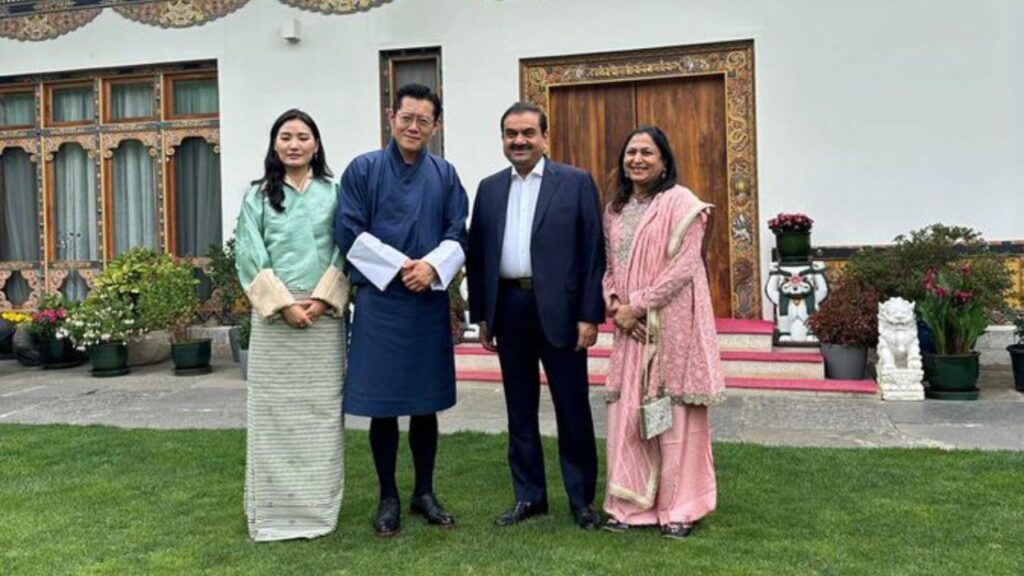Adani Group Chairman Gautam Adani recently visited Bhutan and met with Prime Minister Tshering Tobgay and King Jigme Khesar Namgyel Wangchuck. During this visit, the Adani Group signed a Memorandum of Understanding (MoU) with Bhutan’s Druk Green Power Corporation to develop a 570 MW hydroelectric plant in Chukha province.
Gautam Adani shared the news on X (formerly Twitter), praising efforts of Bhutan in infrastructure development guided by King Jigme Khesar Namgyel Wangchuck’s vision. Adani expressed his eagerness to work closely with Bhutan on hydroelectric and other infrastructure projects.
In his post, Adani said, “Absolutely fascinating meeting with Dasho Tshering Tobgay, Hon. Prime Minister of Bhutan… Admirable to see PM Bhutan advancing the vision of His Majesty The King and pursuing broad-ranging infrastructure initiatives across the kingdom. Looking forward to working closely on hydro & other infra in Bhutan.”
In another post, Adani shared his admiration for Bhutan’s King, stating, “Honoured to meet His Majesty King Jigme Khesar Namgyel Wangchuck of Bhutan. Inspired by his vision for Bhutan and the ambitious eco-friendly master plan for Gelephu Mindfulness City, including large computing centers and data facilities.”

He added, “Excited to collaborate on these transformative initiatives, as well as on green energy management for a carbon-negative nation!”
The Adani Group’s commitment to developing a hydroelectric plant aligns with Bhutan’s goal of enhancing its infrastructure and promoting sustainable energy. This project is expected to significantly contribute to Bhutan’s energy needs and support its eco-friendly initiatives.
Adani’s visit and the subsequent signing of the MoU mark a significant step towards strengthening the collaboration between India and Bhutan. It highlights the Adani Group’s role in supporting Bhutan’s development goals while focusing on sustainable and green energy solutions.
With this partnership underscores the shared commitment to advancing infrastructure and energy projects that benefit both nations and contribute to a more sustainable future.


